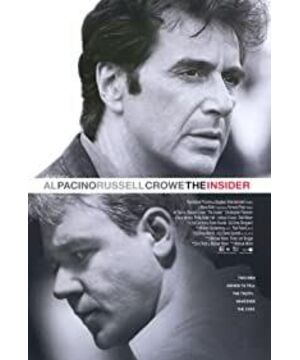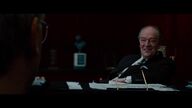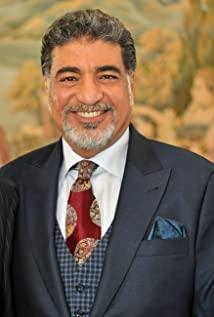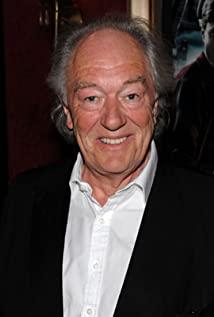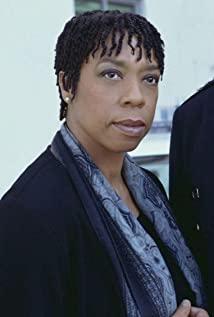One of the protagonists of the story, Jeffrey Wigand, was a former senior executive of a subsidiary of British American Tobacco Company. Car, he has everything a "successful person" can enjoy. But in 1993, Wigander was fired for boycotting the company's use of a potentially dangerous tobacco leaf additive. And he was warned: Either follow the company's nondisclosure agreement, or face lawsuits and risk losing his family's medical benefits, while his child has asthma and needs to pay hefty health insurance. Despite mounting pressure from the company and even threats of anonymous death, he decided to cooperate with federal regulators and anti-tobacco investigators, and tipped off the most prestigious CBS "60 Points" producer. Lowell Bergman, moved by Jeffrey's spirit, was determined to reveal the inside story. The "60 Points" column produced a special program to expose the fact that the presidents of the seven major tobacco companies concealed the fact that nicotine causes cancer in order to seek profits, and ignored the fact of public health.
The truth is about to be revealed, and the deep-pocketed tobacco company launched a strong counterattack. On the one hand, it sent lawyers to threaten CBS with a high lawsuit (a tobacco company has never lost such a lawsuit in history), and even proposed to buy it. On the other hand, he used the media power he bought to dig out the mistakes of Jeffrey's private life, and comprehensively slandered his personality, so as to reduce the validity of his testimony and even break up his family. Under this pressure, CBS executives, for fear of incurring a lawsuit and affecting the upcoming merger with Westinghouse, made compromises for the sake of profit and ordered the program to be re-edited and key content deleted. Lovell was also given a long vacation for offending his boss.
In order not to let Jeffrey's personal sacrifice come to nothing, Lovell, who can be said to have "did his best", did not choose to give up but put his personal gains and losses aside. He refused to "take the overall situation into account" and decided to fight the backwater. He used the power of public media to launch Jedi counterattack. He disclosed through the Associated Press reports and the front page of the New York Times that key interviews were removed by CBS, and publicly criticized the "60 Points" column for betraying the lofty ideals of the journalism profession. At the same time giving evidence to the Wall Street Journal, he came forward to slam the tobacco companies' numerous attacks on Jeffrey as mostly bluffing falsehoods.
Finally, under the pressure of public opinion, CBS had to fully broadcast Lovell's program. This series of actions paved the way for the public prosecutor to sue the tobacco company. The case finally ruled that the number one tobacco company in the United States was responsible for its public A healthy $246 billion in damages, a case that sent tobacco companies' stock prices tumbling, and prosecutors are continuing to demand more damages.
And Jeffrey and Lovell also paid a heavy price for this. Jeffrey lost the comfortable life and happy family he once had, and founded a civil society against teen smoking; Struggle for more than twenty years of work.
View more about The Insider reviews


